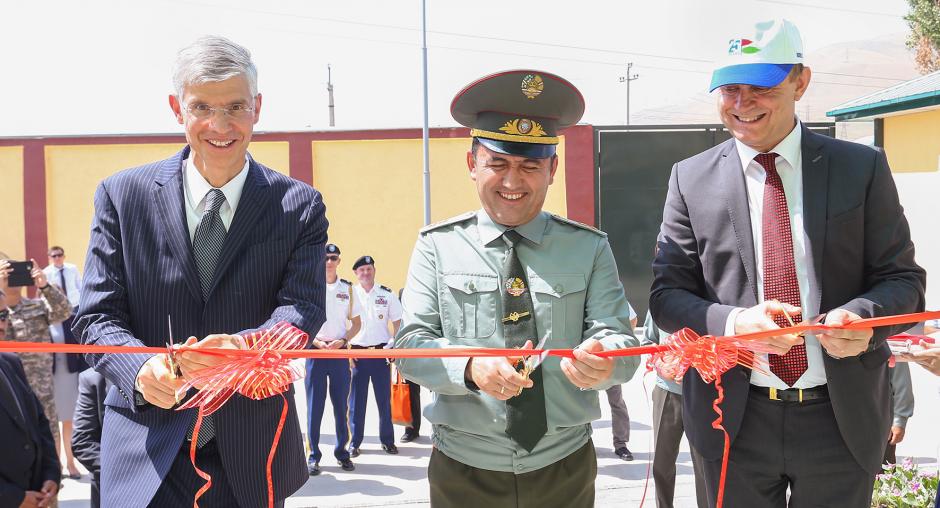OSCE supports inauguration of Regional Explosive Hazards Training Centre of Tajikistan’s Defence Ministry

High-level representatives from Tajikistan’s Ministry of Defence, the OSCE Programme Office in Dushanbe and the United States Embassy participated in the official inauguration of a Regional Explosive Hazards Training Centre of Tajikistan’s Ministry of Defence on 6 August 2019 in Dushanbe.
The establishment of the Centre was initiated under the Memorandum of Understanding between the OSCE extra-budgetary project “Integrated Co-operation on Explosive Hazards Programme” and the Defence Ministry signed in November 2017.
“Building sustainable capacities of the host country and supporting national ownership are at the core of OSCE´s approach,” said Head of the OSCE Programme Office in Dushanbe Valeriu Chiveri. “The OSCE Programme Office will continue to provide a platform that enables the transfer of relevant competencies at the individual and institutional level.”
Lieutenant General Emomali Sobirzoda, First Deputy Minister of Defence/Chief of General Staff of Armed Forces of Tajikistan said: “The Armed Forces of Tajikistan are mandated to address explosive hazards threats. We are particularly satisfied that this regional training centre has become widely recognized among Central Asian states and beyond.”
John Mark Pommersheim, Ambassador of the United States to Tajikistan said: “The United States of America is a committed leader in humanitarian mine action, conventional weapons destruction, and the remediation of explosive hazards throughout the world, as well as a proud partner of the Mine Action Program here in Tajikistan. By alleviating these threats to civilian security, this program demonstrates core U.S. values that respect the dignity of every human being. The Republic of Tajikistan has accomplished much over the past 15 years.”
The project was part of the OSCE’s efforts to develop a co-operative mechanism among Central Asian states to address concerns and challenges stemming from the disposal of explosive hazards. It was supported by the U.S. Department of State, Germany, Austria and the Netherlands.
